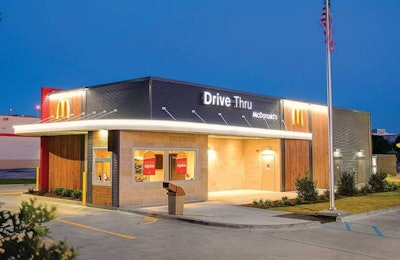
The movement to get companies to adopt broiler welfare policies has been often compared to the movement to get companies to promise to source only cage-free eggs.
But when McDonald’s released its broiler welfare policy last week, things took an interesting turn.
When McDonald’s in September 2015 promised to source only cage-free eggs, it was predicted to be the tipping point toward an industry-wide conversion to cage-free production. While that story has not completely played out, a barrage of cage-free commitments from major restaurant and grocery chains followed, enabling the proponents of the cage-free egg campaign [animal rights groups] to assume a victory and move onto its next ambition.
That ambition has been broiler welfare commitments that include, among other things, sourcing only slower-growing broilers that are breeds approved by the Global Animal Partnership (GAP) or the Royal Society for the Prevention of Cruelty to Animals (RSPCA).
McDonald’s policy bucks the trend
When an email concerning a new broiler welfare policy from McDonald’s reached my inbox, I thought another tipping point had been reached. With McDonald’s now on board, and an earlier commitment in place that would affect Burger King and Popeyes, it would only be a matter of time before other chains would follow.
But when I read the policy, I realized something was different. Yes, it included things that were present in other companies’ policies, like transitioning to the use of controlled atmosphere stunning (CAS), lighting requirements and enhancements such as perches, but one thing in particular set this policy apart from the others.
Rather than stating that the company would source broiler breeds approved by either GAP or RSPCA, McDonald’s stated that it would source chickens “that are raised with improved welfare outcomes.” The policy furthered that statement by adding that it plans to set targets, measure performance and report on key farm-level outcomes across its largest markets.
It also stated that it would establish a global, multi-stakeholder advisory council focused on chicken sustainability, with participation from academics and scientists, suppliers and industry experts, animal welfare and environmental advocates to support our continued journey on chicken sustainability, inclusive of health and welfare.
In essence, McDonald’s said it was going to do what it thought would be better for the welfare of the birds, rather than what GAP and RSPCA thought, and the advisory council would bring credibility to related decisions.
HSUS not satisfied
In a statement, Tyson Foods, the largest broiler company in the United States, expressed that it supports “McDonald’s direction and [looks] forward to working with the company as it moves forward with these initiatives.”
But, one of the organizations making the push for GAP-approved breeds has been the Humane Society of the United States (HSUS), was much less supportive.
In his “A Humane Nation” blog, HSUS President and CEO Wayne Pacelle, also a GAP board member, stated that the McDonald’s policy wasn’t good enough.
Pacelle, in the same blog, fully praised Kraft Heinz, the parent company of Oscar Mayer, for its policy that includes GAP or RSPCA approved breeds.
But the leader of the activist group said the McDonald’s policy “failed to act on the most severe problem within its poultry supply chain, allowing its suppliers to use breeds of chickens that have chronic health problems; the birds are extremely obese and grow so rapidly that some of them have a hard time standing or walking.”
Pacelle is wrong. I won’t get into his comments about chronic health problems and struggles to stand or walk, but will instead focus on his insistence that this if a failure to act.
McDonald's acted, just not in the way that Pacelle wanted. In no place did McDonald’s state it refused to source GAP-approved breeds. It said that it would source chickens raised to better welfare outcomes, and implied that said breeds may not really be what results in the best welfare outcome. In reality, the McDonald's welfare commitment is better than the others, because it is maintaining control while establishing a council of presumably intelligent and informed people to see what is best from a welfare standpoint, rather than settling for a dogma advocated by a group that also continually promotes veganism.
If Pacelle really believed in better broiler welfare, wouldn’t he be praising McDonald’s for seeking something that could be even better than what his groups want?


















